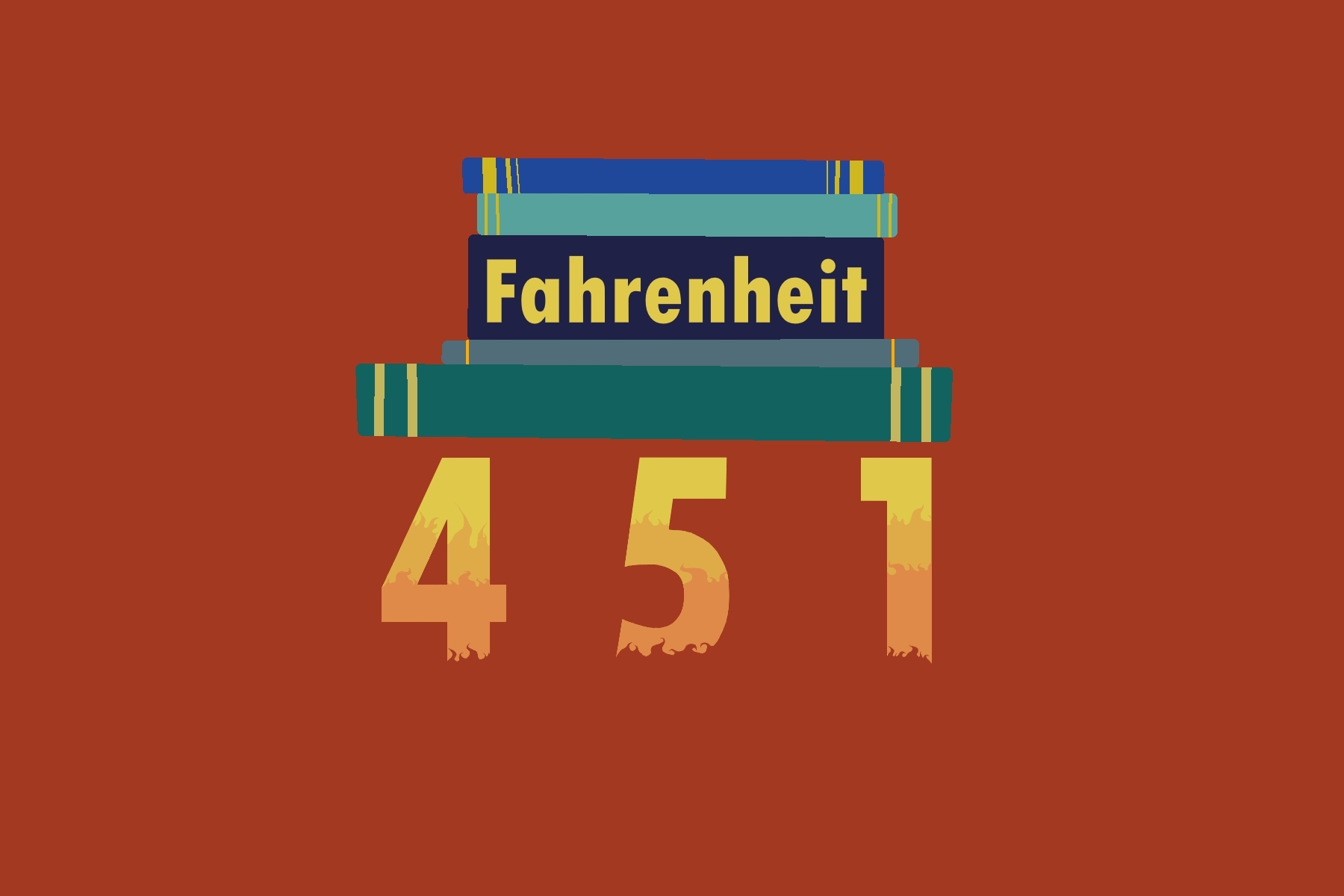America is the closest it has ever been to burning books in a long time. A practice typically associated with Nazi Germany, book burning gained traction in the United States during the Red Scare of the 1950s when Joe McCarthy sowed fear and distrust in the American public. Although book burning never became socially acceptable in the US, book banning is becoming increasingly common, with instances of removing controversial titles from schools and public libraries proliferating across the country. As every reader knows, despite efforts to erase them from memory, words have the uncanny ability to stay with us.
“Time has fallen asleep in the afternoon sunshine.” This sentence from Alexander Smith’s “Dreamthorp” is the only one that Guy Montag, the protagonist of Ray Bradbury’s novel “Fahrenheit 451,” manages to memorize before throwing Smith’s collection of essays onto a pile of books to be burned. In the dystopian reality of “Fahrenheit 451,” firemen no longer put out fires; instead, they are tasked with destroying the books that a courageous few have hidden in their homes. TV, sports, fast cars and violence distract Americans from the fact that their country is at war, and nobody questions the world around them because they believe themselves to be happy. Spoiler alert: no one really is.
However, Smith’s work sparks a desire for knowledge in Montag. He recognizes the impact of words, their power to trouble people and to make them think. After confiding in a retired English professor named Faber that he has been secretly stockpiling and reading books in his own home, Montag becomes the firemen’s next target and is forced to flee to the countryside.
There is hope for humanity’s literary future at the novel’s conclusion: as Montag makes his escape he meets a group of subversives who have partially memorized parts of books, essentially establishing a collective, living library.
While Bradbury’s fictional world presents a worst-case scenario marked by political and cultural decay, it’s not that far-removed from the current situation in the US. Since the outcry against critical race theory has spread throughout America like wildfire in the wake of the Black Lives Matter movement, book bans have risen dramatically. The efforts to render certain books inaccessible by angry parents, school board members and elected officials have recently doubled, with 2,571 different titles being challenged in 2022 compared to just 1,858 in 2021.
Subjects such as race, sexuality and gender are the favorite prey of rightwing activists, who take it upon themselves to dictate which books should be removed from shelves in the name of protecting children. And there isn’t one particular type of book that’s under attack. Everything from children’s books to YA novels to classic literature has received heavy criticism for attempting to indoctrinate kids. Basically, any book that might make its readers wrestle with diverse perspectives is coming under attack.
What’s frightening is that the arguments that supporters of book bans utilize are eerily similar to the ones that Bradbury puts forth in his novel. During a conversation between Montag and his fire captain, Beatty, Beatty asserts that “If you don’t want a man unhappy politically, don’t give him two sides to a question to worry him; give him one. Better yet, give him none.” Although conservative thinkers, or followers, aren’t literally burning books in the streets, they adhere to the same logic that Beatty presents to Montag. By taking away books that deal with difficult issues, students will no longer have to feel uncomfortable or question their own experiences. At face value, this reasoning seems great. But dig into the meat of the argument and you realize just how much there is to lose from banning books: critical thinking, connection, empathy.
Calls to prohibit specific books are only getting louder. In Virginia, two Spotsylvania county school board members openly advocated to burn books that they wanted to be banned in their district. One of the men, Kirk Twigg, claimed that he wanted to “see the books before we burn them so we can identify within our community that we are eradicating this bad stuff.” His words echo those of Captain Beatty when he tells Montag to “Burn them all, burn everything” since “Fire is bright and fire is clean.” The idea that culture needs to be purified of “corrupting” influences is horrifying, reflecting a reversal of historical progress since the 1940s.
The future of books in America looks incredibly bleak right now. When political and cultural forces much larger than you are working to dismantle knowledge that was once readily accessible, it’s easy to feel hopeless. When Montag meets Faber in secret for the first time, the old man reveals to him that he feels “guilty” for failing to speak up: “[When] finally they set the structure to burn the books, using the firemen, I grunted a few times and subsided.” Simply being upset that book bans are happening isn’t enough. “Fahrenheit 451” lays out exactly what happens when the public becomes complacent.
What, then, can be done to combat this great injustice? I would suggest starting by reading “Fahrenheit 451,” which has been censored multiple times. Not only does Bradbury explain the dangers of censorship in great detail and beautiful prose, but he also provides a sense of hope by the novel’s conclusion that everything is going to be okay. Humanity will find itself again. Furthermore, familiarizing yourself with which books are being banned in which states can empower you to make informed decisions about the type of media you want to consume. PEN America provides a comprehensive list of these statistics here. Finally, don’t be afraid to make noise. If you know that your school or local library doesn’t have a banned book that you want to read, you can contact the administration or library staff to inform them that it’s something that you want to see on the shelves.
So what are you waiting for? Do something rebellious today. Read a banned book.


















Hooray! I liked to read this article by the author about the subject